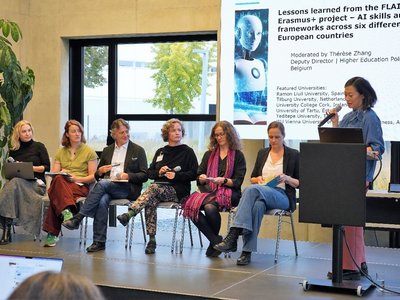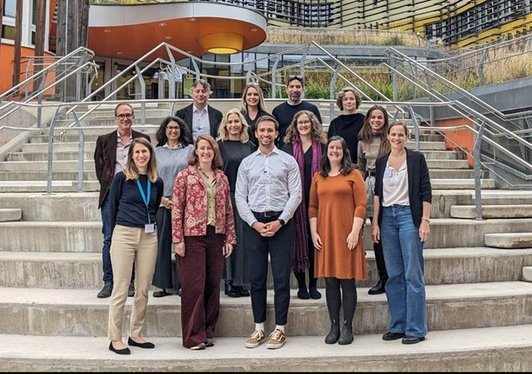

Over the course of two days, researchers, educators, and practitioners shared research outcomes, project insights and ideas on how AI is reshaping higher education. The Erasmus+ Cooperation Partnership project FLAIR , coordinated by WU Vienna, aims at "Fostering Learners' AI Readiness" and the event featured the first public presentation of results.
As the field of AI in education is highly dynamic, the FLAIR consortium deliberately decided to hold an early dissemination event, after just 1 year of working together. This has enabled the consortium to engage in dialogue, validate previous results, and consider new developments in upcoming deliverables.
One of the three conference tracks addressed a central question of the FLAIR project: How can AI competences be meaningfully fostered in higher education – for both learners and teachers? It showcased five inspiring international contributions, including case studies from HEIs as well as global and international initiatives to empower students and teachers with AI skills, which inspired lively discussions among the participants.
A major highlight of the Seamless Learning Conference was the closing plenary session with all FLAIR partners moderated by Thérèse Zhang, Deputy Director at the European University Association (EUA). Based on the published National Reports and the Synthesis Report, the partners presented lessons learned from the systematic exploration of different national and institutional approaches to fostering AI literacy and skills development in higher education. The panel provided insights into national approaches in Estonia, Spain, Ireland, Austria, the Netherlands and Turkey, and discussed existing AI competence frameworks and their limitations. The discussion vividly illustrated both the diversity of approaches across Europe and beyond, as well as the common challenges faced by higher education worldwide.
Following the conference, representatives from all FLAIR partner institutions gathered for an intense two-day working meeting. With the groundwork now laid, the upcoming stages of FLAIR will turn ideas into practice. In the next phase, the consortium will:
- develop a blueprint for self-learning modules and a comprehensive library of materials to enable educators to adapt the self-learning modules to their needs;
- develop a toolkit containing learning activities for lecturers, complemented by learning nuggets ready to be embedded in courses in various disciplines.
Make sure to check the FLAIR website in summer 2026, when the consortium will unveil the self-study modules and learning nuggets.






